We have achieved important transformations that today reflect in a higher standard of living
Through supra-municipal solutions, returning economies of scale and enabling greater levels of efficiency in the utilisation of resources, the group proved able to attain the objectives of raising water quality standards alongside public service levels with Portugal now ranking among the European Union countries attaining the best levels of environmental performance.
Today, Águas de Portugal group companies provide services, directly or indirectly, throughout all of mainland Portugal and across the fields of water supply and wastewater sanitation. The group runs further operations in the renewable energies and shared service sectors as well as its ongoing engagement in international markets.
Taking into account guaranteeing all citizens continuity, universality, quality and sustainability in the provision of these essential public services, the group sets about its mission and heading down a path enabling a more robust and sustainable future due to the excellence of the services rendered, its high level environmental performance and constantly deepening it technical, economic and financial levels of efficiency.
-
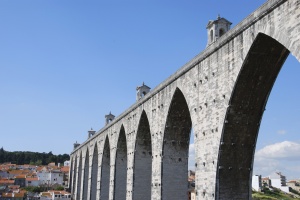
1868
Founding of CAL – the Lisbon Water Company that held the concession for the water supply to the City of Lisbon Water Company through to 1974 when it then gave way to EPAL – the Lisbon State Water Company. In 1991, EPAL was restructured into an entirely state owned corporation and henceforth known as EPAL – Empresa Portuguesa das Águas Livres, SA. which was integrated into the AdP group in 1993.
-
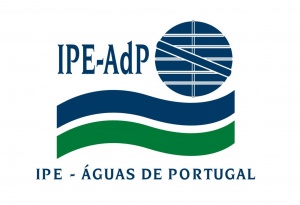
1993
Founding of Águas de Portugal, integrated into IPE – the Portuguese State Investment and Holdings vehicle and attributed responsibility for the development of Multi-municipal Water Supply and Wastewater Sanitation Systems.
-
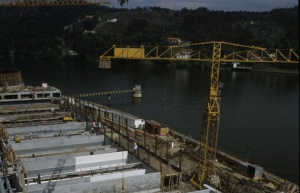
1995
Founding of the concessionary companies running the first Water Supply Multi-Municipal Systems (Cávado, Douro e Paiva, Barlavento Algarvio and Sotavento Algarvio). Founding of the Costa do Estoril Multi-Municipal Wastewater System and the setting up of Sanest.
-
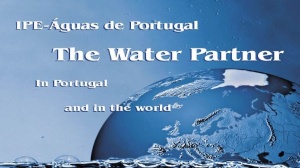
1997
Founding of Aquapor, a company dedicated to participating in the municipal systems market and rendering support to the group’s expansion into international markets and particularly focusing on Portuguese language countries such as Angola, Brazil, Cape Verde and Mozambique.
-

2000
Integration of Empresa Geral do Fomento (EGF) into the AdP group as a sub-holding for the waste sector. Setting up of the first integrated multi-municipal water and sanitation systems in conjunction with the launch of their respective concessions. Beginning of the cooperation project with East Timor. Publication of the first Strategic Plan for the Supply of Water and Wastewater Sanitation (2000-2006).
-
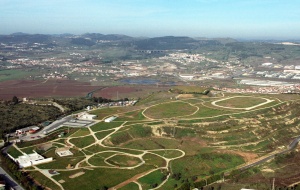
2001-2002
The launch of AdP Internacional and set the mission of managing the Group’s businesses beyond the national scope. There was also completion of the process to deactivate, close and environmentally restore around 300 EGF run rubbish dumps. Furthermore, new multi-municipal systems and their respective managing entities were set up.
-
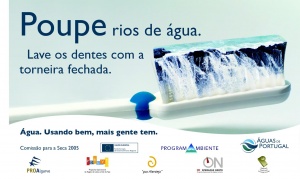
2005
The Water Law was published and transposing into the national juridical framework the EU Water Framework Directive. This also was a year when Portugal experienced a hitherto unprecedented drought with AdP collaborating in the development and implementation of a broad public awareness campaign advocating the rational utilisation of water and means of minimising the impact of the drought.
-
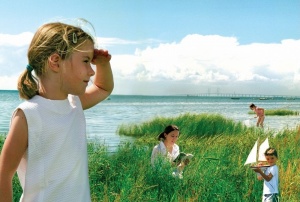
2007
Reorganisation of the AdP Group within the scope of focusing more closely on the Multi-Municipal Water and Wastewater Systems, beginning the process of disposing of Aquapor and other companies with complementary activities in international markets. The new Strategic Plan for Water Supply and Wastewater Sanitation was also published for the 2007-2013.
-
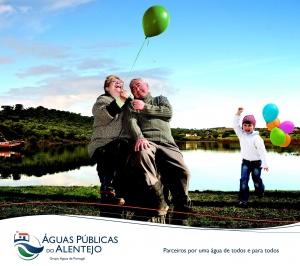
2009
The establishing of a new model for the integrated management of the urban water cycle based upon the signing of partnership contracts between the state and municipalities with the very first such partnerships established in the regions of Aveiro and Alentejo, with their operation and management attributed to the Águas de Portugal group.
-

2012
Launching the process of reorganising the water sector within the objectives of ensuring the continuity, universality, quality and sustainability in the provision of these essential public services and implemented through a series of territorial, organisational, regulatory and financial reforms.
-
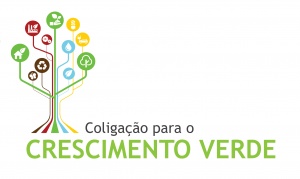
2014
Presentation of the water sector restructuring strategy within the scope of the new strategic plan for the sector for the period through to 2020 (PENSAAR 2020), a new financial support program (POSEUR), the strengthening of economic regulation, with new statutes for ERSAR and the detailed invoice law coupled with the overall reorganisation of the AdP Group. This also saw the approval of the EGF reprivatisation process.
-

2015
New Multi-Municipal Water and Sanitation Systems come into operation in the North, Coastal Centre and Lisbon and the Tagus Valley regions and along with their respective managing companies. Conclusion of the sales process of EGF, sub holding for solid waste treatment.
-
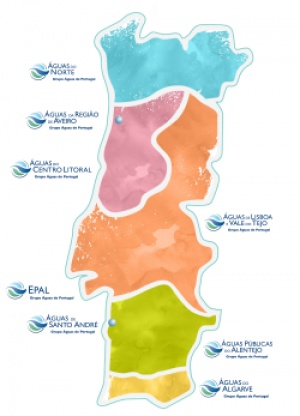
2016
The launch of four additional companies by spinning off Aguas do Norte and Aguas de Lisboa and Vale do Tejo received approval at the General Shareholders Meeting, based on criteria of efficiency, equality and solidarity between systems.
-
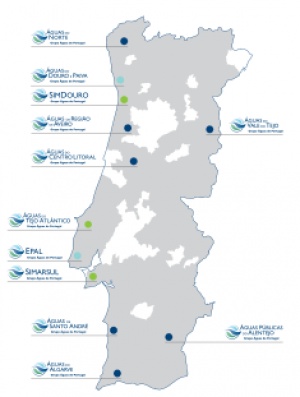
2017
Launch of Águas do Douro e Paiva, SIMDOURO, Águas do Tejo Atlântico and SIMARSUL company operations.
Sale of the remaining share (5%) of EGF share capital.
-
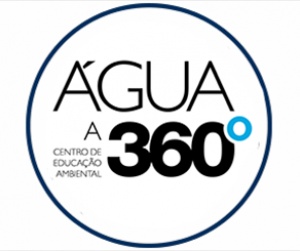
2018
Celebrating the 25th anniversary of Águas de PortugalA study first took place in order to evaluate Portuguese Attitudes and Behaviours towards Water with the results serving as the foundations for an awareness campaign emphasising the value of water launched in September. "Water with a Drop of Conscience" has correspondingly fostered, through a diverse range of actions, the rational and efficient usage of water.The AdP Group inaugurated the "Water at 360º" Environmental Education Centre in its headquarters in Lisbon. This facility undertakes different activities focused on the value of water across its different dimensions through recourse to innovative instruments for fostering the involvement and pleasurable learning of visitors.Disposal of the 55% stake held in the equity capital of Aquasis. -

2019
AdP Group company bills for direct consumer services begin detailing the consumption of water in litres within the framework of fostering awareness about the consumption of water and raising awareness over its rational usage.Establishing the partnership between the Portuguese state and seven municipalities for the founding of the Alto Minho Water System and attributing its operation and management to a new AdP Group company, AdAM - Águas do Alto Minho, S.A.Awarding the management of three dams (Azibo, Apartadura and Odeleite-Beliche) to AdP Group companies following the entrance into effect of Decree-Law no. 160/2019, of 24 October. -
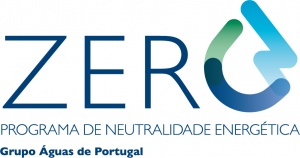
-
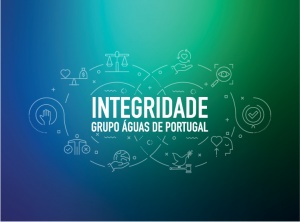
-
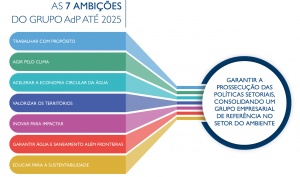
-
2023
Reinforcement of adaptation measures to climate change, with emphasis on water efficiency, resilience of water supply from new sources (ApR – Water for Reuse) and the promotion of reduced consumption through an awareness campaign for the efficient use of water “Água é Vida – Não a desperdice” (“Water It’s Life – Don’t waste it.”).Execution of the AdP Group's Innovation Agenda with the launch of the second edition of the proactive innovation competition aimed at promoting the efficiency and resilience of systems and infrastructures, circular economy and energy and carbon neutrality.
Partilhe:
